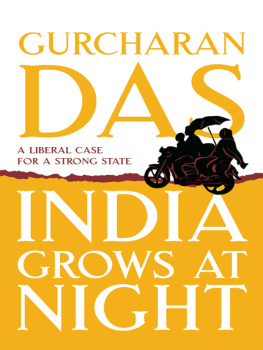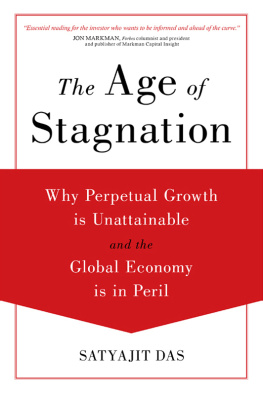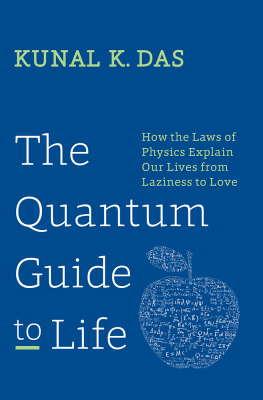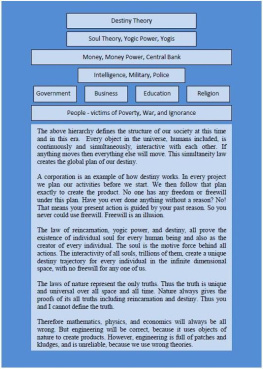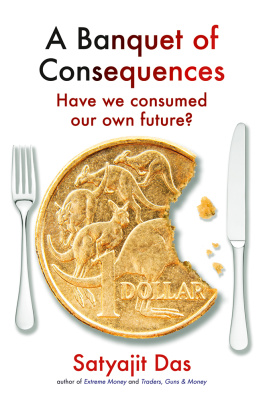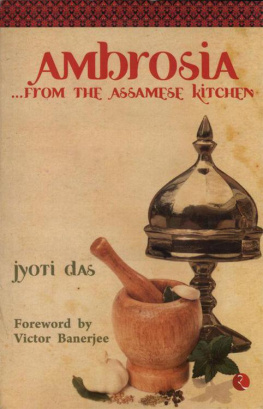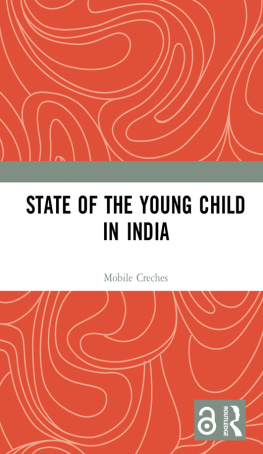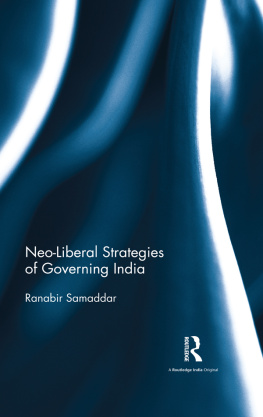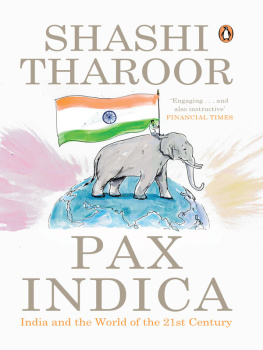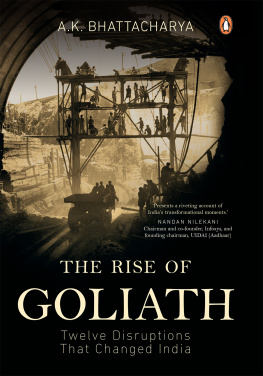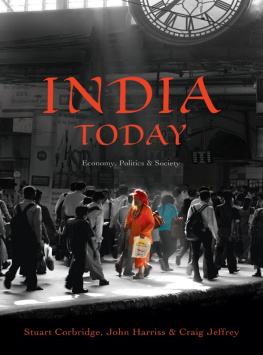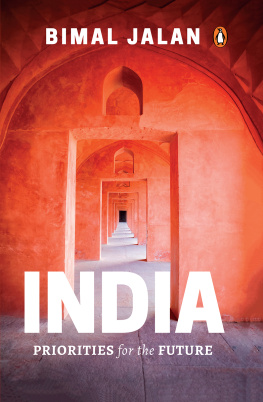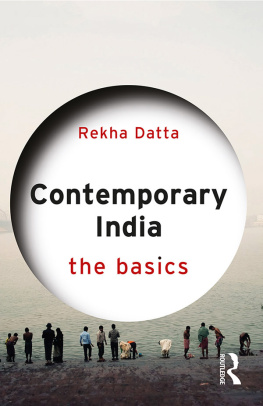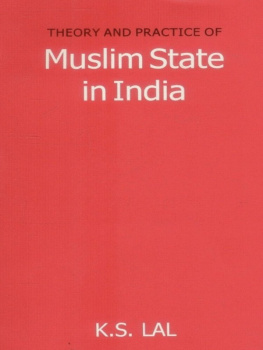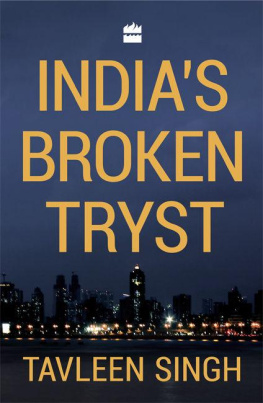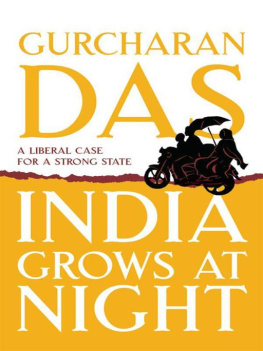Penguin Books is part of the Penguin Random House group of companies whose addresses can be found at global.penguinrandomhouse.com.
This digital edition published in 2016.
This book is sold subject to the condition that it shall not, by way of trade or otherwise, be lent, resold, hired out, or otherwise circulated without the publishers prior consent in any form of binding or cover other than that in which it is published and without a similar condition including this condition being imposed on the subsequent purchaser.
Gurcharan Das is a well-known author, commentator and public intellectual. His books include the much acclaimed The Difficulty of Being Good and the international bestseller India Unbound. He writes a regular column for a number of Indian newspapers and occasional guest columns for Wall Street Journal, Foreign Affairs and Newsweek. He graduated from Harvard University and was CEO of Procter & Gamble before taking early retirement to become a full-time writer. He lives in Delhi.
Praise for the Book
Why should it take us 15 years to get justice in the courts or 12 years to build a road? argues Gurcharan Das... You need a strong state and a strong society, so the society can hold the state accountable. India will only get a strong state when the best of society join the government... Tom Friedman, New York Times
Das has written a timely book that deserves to be widely read. And it has its share of hard-headed proposals... Simply calling for less government is no answer, says Das. It needs also to be strong. Indian capitalism needs an honest referee... India has much to celebrate nowadays but also faces a cacophony of institutional challenges... Dass core argument is right and urgentEdward Luce, Financial Times
An Indian political pamphlet of the 21st century... Das moves swiftly across centuries and continents, between anecdotal evidence and occasional factual detail, to outline his liberal case for a strong state. The essence of this argument is that while India has grown over the last two decades the state has not kept pace. And he does not see this as a recent phenomenon but a part of a longer term realityNarendar Pani, The Hindu
It is hard to disagree with Dass bullish take on the future of the subcontinent. Indian middle classes are on the rise, and are increasingly becoming an interest group in their own right. As they grow in size, wealth and respectability, they will have a greater say in Indian politics and hopefully push for reforms improving government effectiveness and accountability Dalibor Rohac, Mint / Wall Street Journal
The eclectic mixture of mythology, history, sociology and economics is overwhelming, but the reader cant disagree with Dass prescription of a strong liberal Indian stateDipankar Bhattacharyya, Hindustan Times
Offers one significant new twist for the global discussions on markets and states... While the Western world wrings its hands about the loss of the moral on the way to the market, Das celebrates and promotes the discovery of a new version of an old moral compass, driven by and supportive of the market... If the state enables the market, the market will reshape society, and the weak state will become strong, in the sense of being compelled by public aspiration to push back on the illiberal aspects of the social order... In the end, this may be the underlying point of the book: the social system for shaping both markets and states toward development begins with the individual enterprise of introspectionJessica Seddon, Caravan
Gurcharan Dass latest book captures the deep discord in todays Indiaa robust, aspiring society thriving in a flourishing economy held hostage by a flailing state and governance failures. Its focus on what is to be done to create a strong, liberal state in India makes it a brilliant read for all Indians hoping for a better India and keen to contribute to creating oneN.R. Narayana Murthy
Gurcharan Das has written a provocative book on the prospects of economic growth in India today. He writes in such a way that even those who disagree with him are forced to reconsider the grounds on which they base their views. This is a stimulating and challenging bookAndr Bteille
Excellent... gives a brief conspectus of the current working of our democracy... The moral component of the rule of law to justify it as dharma is perceptiveJ.S. Verma, Former Chief Justice of the Supreme Court
Also by Gurcharan Das
NOVEL
A Fine Family (1990)
PLAYS
Larins Sahib: A Play in Three Acts (1970)
Mira: Rito de Krishna, tr. Enrique Hett (1971)
Three Plays (2001, 2011)
NON-FICTION
India Unbound: From Independence to the Global
Information Age (2000)
The Elephant Paradigm: India Wrestles with Change (2002)
The Difficulty of Being Good:
On the Subtle Art of Dharma (2009)
GENERAL EDITOR
THE STORY OF INDIAN BUSINESS
Tom Trautmann, Arthashastra: The Science of Wealth
Tirthankar Roy, The East India Company: The Worlds Most
Powerful Corporation
Kanakalatha Mukund, Merchants of Tamilakkam: Pioneers of
International Trade
Lakshmi Subramanian, Three Merchants of Bombay: Doing
Business in Times of Change
For
Maya Sukshma, Kabir, Nisha, Neha and Megha
Introduction
A Rising Economy, an Aspiring Society and a Declining State
The state exists for the sake of a good life, not for the sake of life alone.
Aristotle, Politics, 3.9
Indians wryly admit that India grows at night when they sit down to sip chai and talk about their countrys messy road into the future. But that is only half the saying. The complete sentence is: India grows at night while the government sleeps, meaning that India may well be rising despite the state. Prosperity is, indeed, spreading across the country even as governance failure pervades public life. It is a tale of private success and public failure. The private home is neat, clean and energetic. The government office is slothful, suffocating with controls and filled with mind-bending red tape. If it were a home, dirty dishes would be flung about the bedroom, old shoes and newspapers would be piled high in the kitchen, and everyone would have chai all day long. The difference between the two is a sense of responsibility in the Indian homeif you dont work you dont eat. That accountability is missing in public life.

